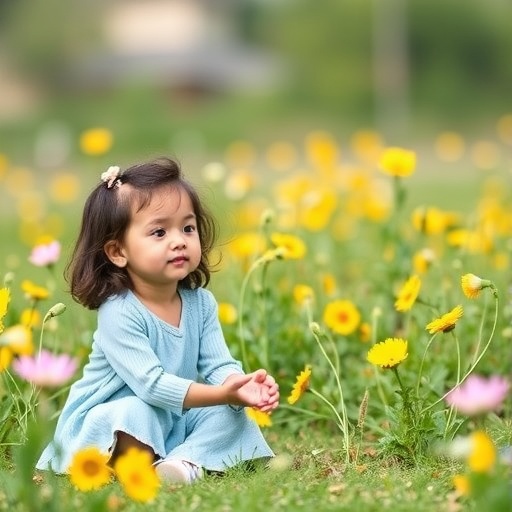In a groundbreaking study published in the International Journal of Emotional Care (IJEC), researchers Zeng, Wu, and Lau explore the intricate dynamics between parental psychological distress and its subsequent impact on children’s social and emotional adjustment. Their research emphasizes the critical role of mindful parenting and children’s gratitude as mediators in this relationship. As issues surrounding mental health in parents continue to gain attention, this study presents essential insights that could redefine approaches to parenting and child development.
The study begins by illuminating the profound connections between parental mental health and childhood development. It has long been established that the emotional and psychological well-being of parents not only affects their quality of life but also significantly influences their children’s behavior, emotional regulation, and interpersonal skills. This inherent link forms the cornerstone of Zeng and colleagues’ investigation, offering a nuanced understanding of how parental distress may translate into adverse outcomes for children.
Further probing into the matter, the researchers focus on mindful parenting—a practice grounded in being present in the moment, fostering awareness, and promoting emotional regulation. Mindful parenting encourages parents to attune to their children’s needs, which can mitigate the adverse effects of psychological distress. The study illustrates various mindful strategies, demonstrating how parents can cultivate a more supportive and nurturing environment even in the throes of their own emotional challenges.
Meanwhile, the role of children’s gratitude emerges as a pivotal theme in the findings. Gratitude, defined as a positive emotional response to receiving or recognizing kindness, can serve as a buffer against the negative effects of parental distress. The researchers highlight a reciprocal relationship; when children practice gratitude, it not only enhances their emotional resilience but also contributes positively to their relationship with their parents. This cyclical dynamic becomes a central focus, emphasizing the need for fostering gratitude in children.
As the study unfolds, it presents empirical data supporting its claims. Through a carefully structured methodology, researchers evaluated a diverse sample of parent-child dyads, measuring variables such as parental psychological distress, child emotional adjustment, and instances of mindful parenting practices. The use of validated scales ensured the reliability of the findings, allowing for a more in-depth understanding of the correlations observed.
The results of the study provide compelling evidence that parental psychological distress can lead to poorer social and emotional adjustment in children. However, the mediating effects of mindful parenting and children’s gratitude present a beacon of hope. By employing mindful parenting techniques, parents can potentially alleviate some of the negative ramifications linked to their own psychological struggles. Furthermore, cultivating gratitude in children may empower them, equipping them with tools to navigate their emotional landscapes more effectively.
In their discussion, the authors call for a paradigm shift in how we address parental mental health and its implications for child development. Instead of viewing parental distress solely as a negative influence, the study suggests a more holistic approach—one that considers additional variables like mindful practices and gratitude. Such an approach may help develop more comprehensive intervention strategies tailored to support families grappling with psychological challenges.
The implications of this research extend beyond academic circles and into practical applications. Parenting programs that emphasize both the reduction of psychological distress among parents and the promotion of mindfulness could enhance family dynamics and overall child well-being. Additionally, school-based interventions fostering gratitude in students can create a ripple effect, benefiting individual children and potentially transforming family relationships.
Our society stands at a pivotal point when discussing mental health and family dynamics. The insights derived from Zeng, Wu, and Lau’s research provide a framework for understanding the pathways through which parental distress affects children—and highlight the avenues for intervention. The role of mindful parenting and the cultivation of gratitude are not mere footnotes in the narrative of family health; they are intrinsic to fostering emotional resilience in children.
As further research is conducted in this domain, it becomes increasingly clear that the intersection of parental mental health and child development harbors significant potential for intervention. Stakeholders—ranging from mental health professionals to educators and policymakers—may find these findings valuable as they strive to enhance support systems for families. By equipping parents with tools to practice mindfulness and nurturing a culture of gratitude in children, positive outcomes can reverberate through generations.
As the study concludes, it affirms the necessity of continued exploration in this field. Understanding the intricate web of relationships that influence child development requires concerted efforts from multidisciplinary teams. The journey toward optimal family dynamics is ongoing, and every insight counts. Zeng, Wu, and Lau’s contributions mark a significant step in the right direction, igniting discussions that will shape future endeavors in mental health and parenting.
This study undoubtedly illuminates a path forward, calling for actionable strategies that combine mindfulness with emotional learning. The ripple effects of such practices might not only mitigate the challenges posed by parental distress but also cultivate healthier, more resilient communities.
In conclusion, the multifaceted nature of parental psychological distress on children’s emotional adjustment necessitates a broad, integrative approach encompassing mindful practices and the promotion of gratitude. As researchers and practitioners continue to delve into this complex relationship, the ultimate goal remains clear: to improve the lives of children and families navigating the often turbulent waters of mental health.
Subject of Research: The impact of parental psychological distress on children’s social-emotional adjustment and the mediating roles of mindful parenting and children’s gratitude.
Article Title: Correction: Parental Psychological Distress and Children’s Social Emotional Adjustment: Mindful Parenting and Children’s Gratitude as Mediators.
Article References:
Zeng, XY., Wu, Xy., Lau, E.Y.H. et al. Correction: Parental Psychological Distress and Children’s Social Emotional Adjustment: Mindful Parenting and Children’s Gratitude as Mediators.
IJEC (2025). https://doi.org/10.1007/s13158-025-00450-4
Image Credits: AI Generated
DOI: 10.1007/s13158-025-00450-4
Keywords: Parental psychological distress, children’s emotional adjustment, mindful parenting, gratitude, intervention strategies.




